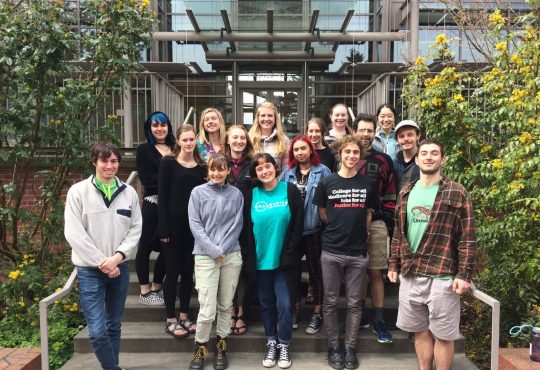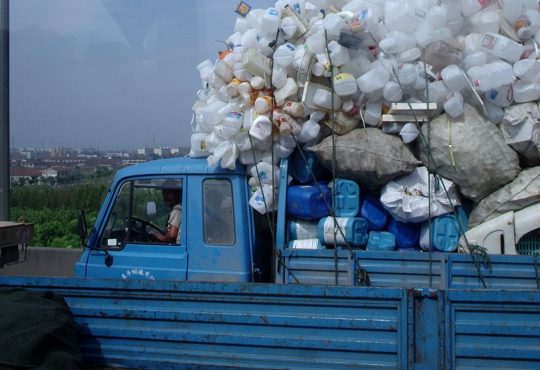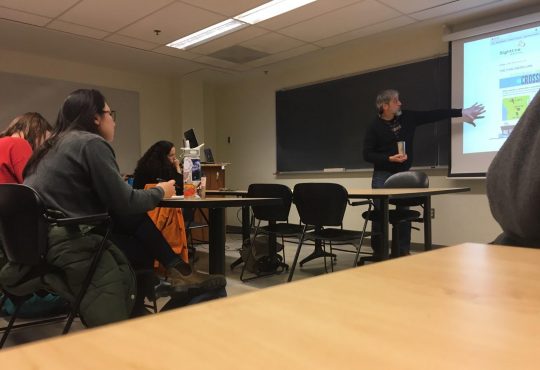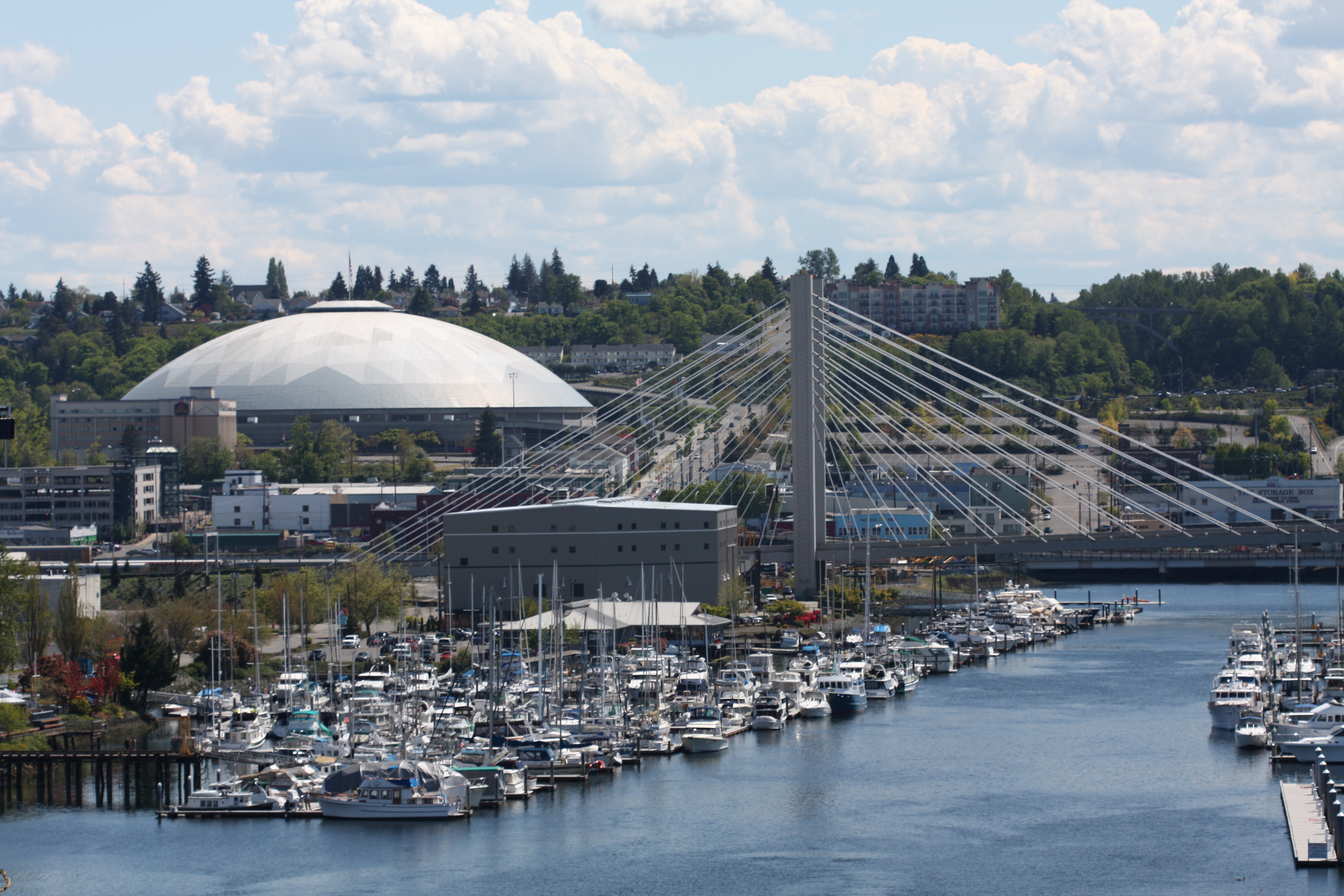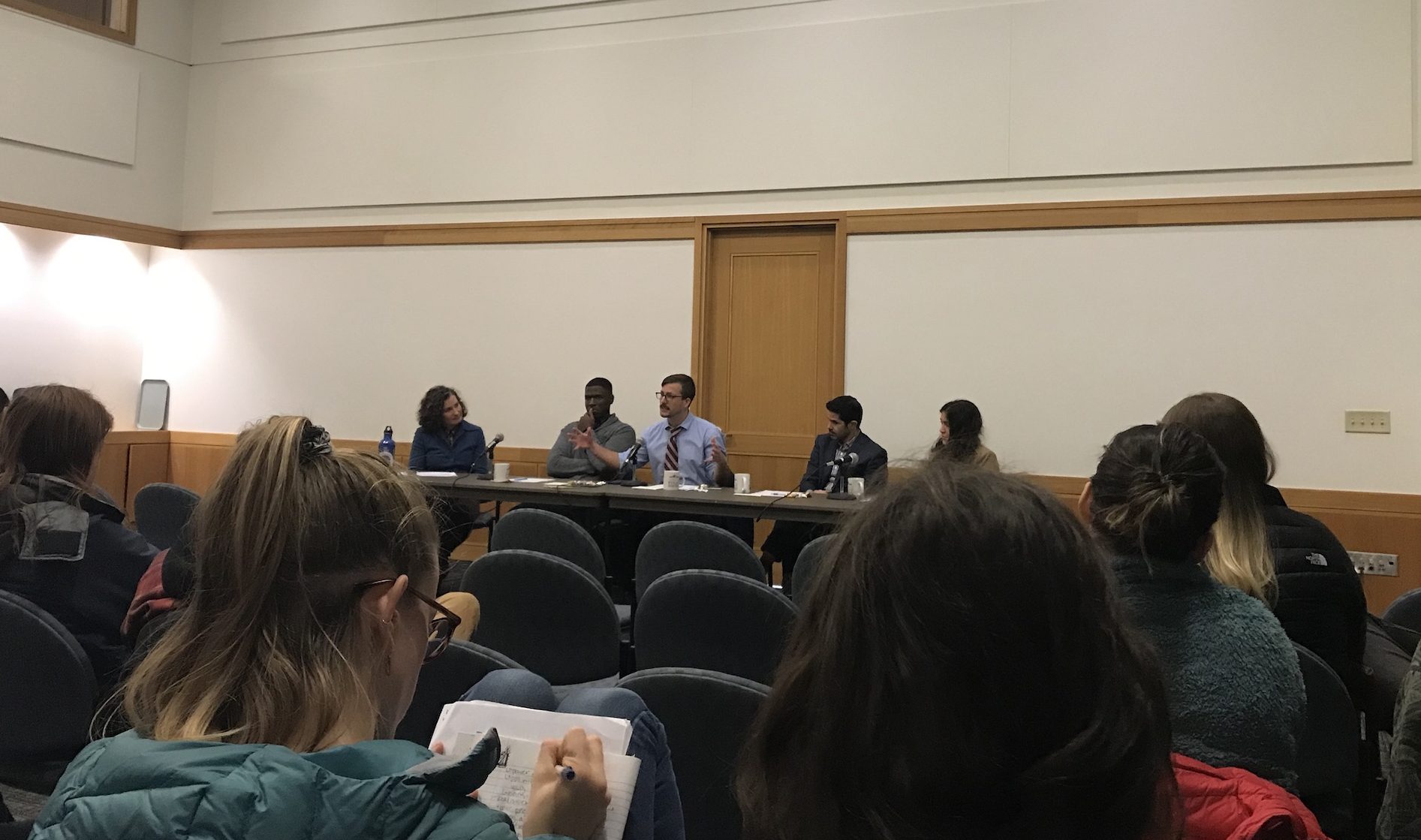
The fate of the environment is in our hands — now what?
Outdoor adventurers and lovers of all things natural gathered in Trimble Hall Wednesday, Feb. 8 to hear what the experts had to say on public engagement in the environmental sector.
The verdict? Participation by everyday people is essential to saving our planet and moving climate change legislation forward.
Lindsay Walker of the Sound Policy Institute — a University program that connects students, faculty and community members with real-world environmental decision-makers — was joined by Tony Ivey, Robb Krehbiel, Ryan Mello (’01) and Sarah Griffen (’19), most of whom are environmental professionals in the Puget Sound area.
Krehbiel works for the Defenders of Wildlife saving southern resident orcas, an issue that makes him very proud to work within the sector and highlights the importance of civilians in this struggle.
“All good policy needs to start with connecting people to their environment and to their legislators,” Krehbiel said.
Krehbiel not only works with doctors and scientists to save the orcas, but also with elementary school children, teaching them how rain collection on their schoolyards can help save these friendly giants. The value in working with kids, he said, is creating a bond between community members and their surroundings from a young age.
Ivey, who works for the Washington Environmental Council, has a tougher approach to getting involved. He says that what most people consider the pinnacle of political engagement — voting — is only the beginning.
“You need to figure out a way to extend your vote, double your vote, triple your vote. The way you do that is by getting engaged and volunteering your time. Canvas, call your legislator … it is not enough to say, ‘I voted and did everything I could.’ That is the least you can do,” Ivey said.
Mello, who is a Tacoma City Council Member at Large and the Pierce Conservation District Executive Director, agreed with Ivey, adding on that agenda setting is another powerful tool the public can use.
“You guys are the advocacy community. You have to come in and set the agenda. I am never going to be able to set an agenda without your help,” Mello said.
The most recent community battle was over Washington Initiative 1631, an ambitious carbon emissions fee measure that was ultimately shot down in the November election. While the panel members are still disappointed over how the measure was opposed — $40 million was poured into the opposition by Big Oil — they saw their defeat as a strategic loss and ask the public to do the same.
“You’ve got to be able to value both incremental wins and strategic losses. Introduce bills that will never pass just to introduce topics and get the conversations going,” Krehbiel said.
That’s where we come in, Krehbiel says: “Go talk to legislators. Go talk about your own experiences. Don’t show them facts and figures. Go tell your story.”

